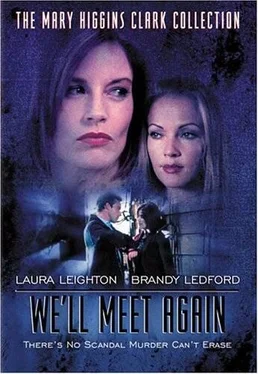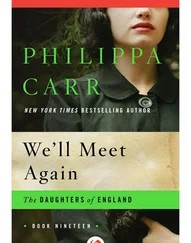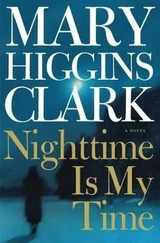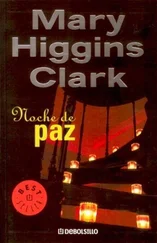“That’s exactly why I’m calling, Doctor,” Cal said smoothly. “You don’t watch television, so you wouldn’t know who I’m talking about, but there is a young woman who is achieving national prominence as an investigative reporter, and who I am arranging to have come out and do a preliminary interview with you. She understands we have to maintain absolute secrecy, but she will immediately begin plans for a thirty-minute special that will be aired within seven days of now. You must realize that it is essential to whet public interest so that when this stunning scientific achievement is unveiled, the show will be watched by a huge national audience. It’s all got to be carefully planned.”
Whitehall got the response he anticipated. “Calvin, I am very pleased. I realize that we may have some minor legal problems to contend with, but that is of little importance given the significance of what I have achieved. At seventy-six years of age, I want to see my accomplishments recognized before my own time runs out.”
“And you shall, Doctor.”
“I don’t think you’ve told me the name of the young woman.”
“It’s Simmons, Doctor. Fran Simmons.”
Calvin hung up the phone and pressed the button on the intercom that connected him to the garage apartment. “Get over here, Lou,” he said.
Even though Cal had announced no plans to go out that evening, and Jenna had left earlier, taking her own car, Lou Knox had been waiting for the summons. He had seen and heard enough to know that Cal was having serious problems and that, sooner or later, he would be called in to help solve them.
He was right on the money, as usual.
“Lou,” Cal said, his manner almost genial, “Doctor Logue in West Redding has become a serious problem, as has Fran Simmons.”
Lou waited.
“Believe it or not, I am setting up an appointment for Ms. Simmons to interview the good doctor. I think you should be in the vicinity when it takes place. Now I should tell you that Doctor Logue has a good many combustibles in his laboratory at the farmhouse. I know you’ve never been inside, so let me explain. The laboratory is on the second floor, but quite accessible thanks to an outside staircase to a back porch that leads directly to it. The window onto the porch is always left slightly open for ventilation. You’re following me, aren’t you, Lou?”
“Yes, Cal.”
“Mr. Whitehall, Lou, please. Otherwise you might forget yourself in front of others.”
“Sorry, Mr. Whitehall.”
“There is a clearly marked oxygen tank in the laboratory. I am sure that a fellow as clever as you are could toss a flaming object into that room and be down those steps and clear of the house before the tank explodes. Don’t you agree?”
“Yes, I do, Mr. Whitehall.”
“This mission may take you away from here for several hours. Of course, any overtime service you do for me is always suitably rewarded. You know that.”
“Yes, sir.”
“I have been turning over in my mind the best way to persuade Ms. Simmons to visit the farmhouse. Naturally the utmost secrecy about her trip there must be maintained. Therefore I think she should receive a tip she can’t resist, preferably from an anonymous source. You get my drift?”
Lou smiled. “Me.”
“Exactly. How say you, Lou?”
“How say you?” was Cal ’s habitual touch of humor when he was satisfied that a good plan was about to be executed.
“You know me,” Lou said, swallowing Cal ’s name before he uttered it, “I love to play Deep Throat.”
“You’ve done it so well before. This time I think it should be particularly interesting. And rewarding , Lou. Don’t forget that.”
As they smiled at each other, Lou thought back to Fran Simmons’s father and to the hot tip Lou had passed along to him, telling him he’d heard Cal talking of overnight riches to be made in a stock that was about to go public. The $40,000 Simmons had hastily borrowed from the library fund, thinking he would replace it in a few days. What led Simmons to take his own life was that a second withdrawal, under his forged signature, had been made that raised the deficit to $400,000. He knew that after he admitted the first illegal withdrawal, nobody would believe that he wasn’t guilty of the second.
Cal had been particularly generous that time, Lou remembered. He’d been allowed to keep the original $40,000 Simmons had eagerly pressed into his hand and the worthless stock certificates that Simmons had trustingly put in Lou’s name.
“Given our history, it seems only fitting that I be the one to make the call to Fran Simmons, sir,” Lou said to his former school chum. “I look forward to it.”
As soon as Fran left the hospital, she phoned Molly from the car. “I really need to see you,” she said urgently
“I’m certainly here,” Molly told her. “Come by. Jenna is with me, but she has to leave soon.”
“I hope I don’t miss her. I’ve been trying to set up a date to talk with both her and her husband. I’ll be there in a couple of minutes.”
I’m cutting it close, Fran thought, checking her watch and calculating that she had to start back to New York in the next half hour, but I do want to see for myself how Molly is doing. She has to have received the notice for the special meeting of the parole board scheduled for Monday. It occurred to her that if Jenna was still there, she couldn’t ask Molly about Gary Lasch’s inviting Peter Black to join him in running the hospital. She’d be sure to tell her husband. Of course, Fran realized that given their history, Molly might tell Jenna what they talked about anyhow.
At ten minutes to three, Fran turned into Molly’s driveway. There was a Mercedes convertible parked in front of the house, which she knew had to be Jenna’s car.
I haven’t seen her in so many years, Fran thought. I wonder if she’s still as great looking as she was back then? For a moment the old sense of inadequacy enveloped her as she thought of the years she had lived in Greenwich and gone to school there.
When they were at Cranden Academy, it was generally known that Jenna’s family didn’t have money. Jenna herself used to joke, “My great-great grandfather made big bucks, and his descendants spent it all!” But there was no debating her blue-blood lineage. Like Molly’s ancestors, Jenna’s had been late-seventeenth-century settlers from England who came to Boston as wealthy appointees of the Crown, not like most who arrived, hoping to scrape together a living in the New World.
Molly opened the door as Fran came up the walk. She obviously had been watching for her. Fran was startled at Molly’s appearance. She was ghostly pale, and her eyes were heavily circled. “ Reunion time,” she said. “Jenna waited to see you.”
Jenna was in the study, looking through a stack of photographs. She jumped up when she saw Fran. “We’ll meet again,” she sang as she swooped across the room to embrace her.
“Don’t remind me of that idiotic class history I wrote,” Fran begged with an exaggerated grimace. After the quick embrace, she stepped back. “Come on, Jenna, isn’t it about time you started to lose your looks?”
Jenna did look spectacular. Her dark brown hair fell with casual elegance to a point just above the collar of her jacket; her enormous hazel eyes positively glowed; her slender body moved with a seemingly unconscious air of careless elegance, as if the beauty she possessed and whatever compliments she received for it were no more than her due.
For an instant, Fran felt as though the clock had spun backwards. The closest she had been to Molly and Jenna during those four years at the academy was the time they all spent working on the yearbook. Today, this room reminded her of the yearbook office, with the piles of papers and files, the scattered photographs, the stack of old magazines.
Читать дальше












